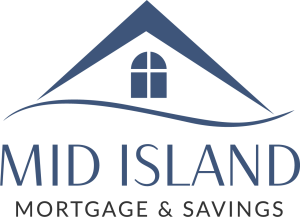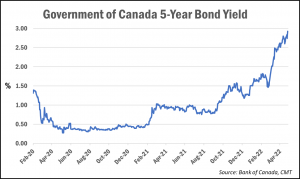When it comes to interior design, 2021 isn’t too different from 2020.
Unlike Chip and Joanna Gaines, the pandemic has been the biggest influence on interior design that no one asked for. At the beginning 2020, designers were touting two-tone kitchens and bold colors as the next big trends. Little did anyone know that practical amenities like home offices, gyms and bidets would end up being the most important design trends of 2020.
Still, while the new year presents a new opportunity to refresh our homes, in certain ways it still feels as if we’re stuck in 2020. Many locations are still under stay-at-home orders, remote work has become the norm, and some children aren’t yet back in school full-time. And while we’ll see some new looks for the home this year, many of the trends influenced by the pandemic are here to stay for 2021.
Home Gyms

If something positive can be taken away from the pandemic, it’s that we all need to be mindful of our heath and lifestyle choices. Gyms have not reopened everywhere and many people have adapted to home fitness routines. So, having a space to exercise couldn’t be more important, especially to Asha Kai, CEO of activewear brands Cor and Ultracor. “These days, being active is not an option— it’s essential for mental health,” she says.
Before the pandemic, Kai built a gym on the first floor of her Los Angeles home. She had more than enough equipment to stay fit when she couldn’t make her regular Pilates class.
When COVID shut everything down, it became her only option. “In the midst of running two national brands and raising three kids, working out must stay a priority if I want to perform at my best. Since the pandemic has restricted access to gyms and studios, I feel incredibly fortunate to have a home gym to keep me in shape.”
However, if you don’t have a large amount of space or a separate room, that doesn’t mean home workouts are out of the question. Personal trainer and podcast host, Doug Bopst believes extra square footage or investing in expensive equipment isn’t necessary. “You can just corner off a section of your basement, family room, or office with dumbbells, resistance bands, and a ball. Then expand off of that,” he says.
Purchasing portable cardio equipment is another option. “I advise people to buy a brand new rowing machine. Aim to spend somewhere around $900. You can lean it up against the wall when it isn’t being used to save space,” he says.
To make a home gym area blend in with your decor scheme, store dumbbells, resistance bands, and other equipment in a cube-style bookcase with bins. This unit from Wayfair is available in several shades of wood so you can coordinate it with your furniture.
Home Offices

Because technology has made the large, corporate office unnecessary in many ways, home offices are now considered a “must-have.”
“For those fortunate enough to work from home this past year, a home office or work-from-home zone has become essential. Even as business and offices reopen, many companies have made a conscious shift to a work-from-home hybrid model that only requires employees to come into the office a few days a week,” says Justina Blakeney, founder of Jungalow. “We’ll see a rise in home offices and creative solutions to create work zones. For example, if renovations are out of reach, people may take off sliding closet doors and turn a guest bedroom closet into an office.”
While most people are forced to adapt the space they currently have, it’s likely many new homes will be built with home office spaces. In homes undergoing renovations, we’ll likely see built-in desks, sectioned off alcoves, and other areas converted into workstations.
Elevated Outdoor Spaces

“In 2020, people were spending more time in their yards for health and safety reasons. Many were sitting on their patios for the first time, socializing at a distance in their backyards, or watching birthday parades from their front yards, says Blakeney.
She predicts indoor spaces will continue to inspire outdoor design with outdoor rugs and dining sets becoming popular choices for most backyards. The same can be said for fire pits and other outdoor heat sources which have become essential in cooler climates.
Nature-Inspired Designs

The natural world has been a major influence on design in recent years. “More than ever, we’re craving a renewed bond with nature and the outdoors. Organic materials and pure textiles showcase nature’s beauty, structure, and irregularities,” Rebecca Breslin, Senior Design Manager at Wayfair Professional tells me. “Earth tones, organic shapes and textures, woven rattan, and reclaimed materials speak to our need for sustainable design and everyday wellness.”
The prominence of plants is another example of nature-inspired design. “In the past couple of years, it’s been houseplants everywhere,” says Danielle Blundell, Home Director of Apartment Therapy. “Everybody is bringing in trees, they have windowsill gardens— maybe they have an herb garden, but it’s just plants on plants on plants. And I don’t think that’s going anywhere.”
However, Blundell sees this aesthetic evolving in 2021 through the incorporation of biophilic motifs, “It’s an emphasis on flora and fauna. In the past, we’ve seen cutesy florals and very springy palates. This time around, it’s a little bit earthier, a little bit moody.”
Gallery Walls

The gallery wall is on its way to becoming a classic and isn’t likely to fall out of favor any time soon. However, according to HomeGoods Style Expert and Interior Designer, Beth Diana Smith, there is an overall shift towards making this design choice more meaningful and intentional than in previous years. “[In 2020], we saw a greater focus on cultural design tied to embracing one’s ethnicity, background, and traditions, which I hope will continue far past 2021.”
Smith recommends framing old family photos and keepsakes using a mix of metal and wooden frames, in a variety of sizes and styles, which are easy to find at stores like HomeGoods. “The gallery wall will tell the story of your family and heritage, and the varying frame styles will help to showcase different stages of your family and life.”
Uplifting Art
Brightly colored and whimsical art was a trend that picked up in 2020 to contrast the stark reality of life. Although 2021 feels like a better year already, an overall gravitation towards bright colors is likely here to stay, according to Alix Greenberg, founder of ArtSugar. “Sales for our acrylic mountable smiley faces, and colorful pieces that pop soared, illustrating that when people are stuck at home, at very least, they want to feel joy. As the new year begins and as we come closer and closer to the end of this pandemic, the feel-good art trend isn’t going away.”
Walnut Wood
Walnut wood, which many people associate with mid-century modern design has fallen in and out of style for the past decade, but it’s back and likely here to stay. “When we launched in 2011, walnut was our calling card— its rich, deep browns and dramatic grain patterns gave every customer a unique, one-of-a-kind look,” says Molly McDermott Walsh, Vice President of Marketing at Semihandmade. “Walnut’s popularity has ebbed and flowed over the past ten years, but it definitely seems to be enjoying a moment again now, as reflected in our 2020 sales.”
Art Deco

New York City and Paris based interior designer Alexander Doherty is a proponent of art deco style, which had a revival in 2020. This style will continue to remain popular because of how well it integrates into contemporary spaces. “It is ideal for new construction, like many homes in New York City that live in glass tower buildings. Art deco is a style that will incorporate itself very easily into homes with little architecture. It is key to be able to give a nod to the past while utilizing modern elements.”
For those looking to integrate more of this style into their current abodes, he suggests combining a variety of materials, styles, and time periods to create a unique layered look.
Bidets
With toilet paper shortages across the country in 2020, many Americans had no choice but to look into an alternative that some previously considered too European for their personal tastes. The bidet is currently having a moment.
From the hard installation of fixtures to less design forward toilet seat attachments, the bidet will continue to trend this year. “I think the toilet paper gate of 2020 scared us all and we have been getting a couple of inquiries about our thoughts on bidets,” Tiffany Leigh of Tiffany Leigh Design tells me.

Finishing Touches
COVID dragged out and delayed many renovations. But in 2021, these projects are finally coming to fruition. After a long wait, artist and designer Elizabeth Sutton reveals there is an overall trend of doing whatever it takes to achieve the perfect aesthetic. “People had been in the process of completing their spaces and forgetting finishing touches like decorative objects and art, once their furniture arrives. But this year, as well as the end of last year, I’ve seen a lot of art purchases, adding new rugs and painting walls to add vibrancy into homes.”
After all, if we’re spending so much time in one place, there’s no reason why it shouldn’t be perfect.

Have more mortgage questions or concerns? Call our office today at 250 753 2242 and we can help with all of your mortgage questions!
“LIKE” our Facebook page or “SHARE” this post to be entered into our quarterly draw for a $150.00 gift card!!!
Facebook: www.facebook.com/midislandmortgagenanaimo
We thrive off of your continued support and client referrals. Let us reward you for helping us get our name out into the community! Please mention who referred you or how you heard from us, when filling out your mortgage application. The name you give us will also be entered into the same draw for coming in to see us!
We are open Monday to Friday from 9 am to 5 pm. Kevin Decker can also be reached after hours at 250 619 2262 and Jason Barudin can be reached at 250 668 2203.
















